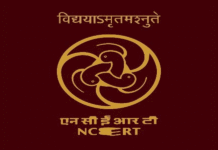To promote ecotourism during the monsoon and off-peak tourist seasons, the Andaman and Nicobar Islands Tourism Department, in partnership with the Avians Club, organized a lecture on “Bird Watching in the Andaman and Nicobar Islands” at Sri Vijaya Puram. Delivered by Arun Singh, President of the Avians Club, the lecture highlighted the islands’ remarkable avian biodiversity and explored how bird watching can be developed as a sustainable and experience-oriented form of tourism.
Over 300 species of birds have been recorded in the Andaman and Nicobar Islands, many of which are endemic to the region, such as the Andaman Crake, Nicobar Megapode, and Andaman Woodpecker. These species attract bird watchers and researchers from across the country and abroad. Singh emphasized that the islands’ natural wealth offers immense potential for nature-based tourism, particularly among niche traveler segments who seek immersive and responsible experiences.
The event also sought to draw attention to how bird watching can generate employment for local communities. By training local youth as eco-guides and establishing homestays in biodiversity-rich regions, the Tourism Department aims to integrate this offering into its broader tourism development strategy. Singh underlined the importance of conducting guided bird-watching trails that educate tourists while minimizing human impact on fragile ecosystems.
Beyond the ecological and employment benefits, off-season tourism through bird watching can help ease the seasonal pressure on popular sites, spreading visitor footfall more evenly throughout the year. This also enables more equitable economic distribution across regions and enhances resilience within the tourism-dependent economy.
The lecture drew a wide range of participants, including nature enthusiasts, school and college students, tour operators, local eco-guides, and tourism officials. Their engagement underscored a growing interest in sustainable tourism practices and a recognition of the economic and ecological benefits of preserving natural habitats.
Attendees discussed the potential of community involvement in promoting responsible tourism. Suggestions ranged from incorporating bird-watching itineraries into official travel brochures to organizing annual bird festivals in collaboration with local panchayats and forest officials. Many agreed that strengthening awareness among both residents and visitors about endemic species and their habitats is crucial.
The Department of Tourism reiterated its commitment to promoting ecotourism in alignment with conservation principles. Officials noted that monsoon and shoulder seasons offer unique opportunities to experience the islands’ rich flora and fauna, often overlooked by mainstream travel circuits.
Singh concluded the session by calling for a coordinated effort between government bodies, conservationists, and tourism stakeholders to build a sustainable model where bird conservation and tourism can co-exist. The Tourism Department is also considering producing educational materials and maps that highlight prime bird-watching zones across the islands.
As part of follow-up action, the Department plans to organize hands-on workshops for tour operators and guides to improve identification skills and introduce ethical guiding practices. These steps are expected to enhance visitor experience while ensuring the protection of bird habitats.
The successful event added momentum to ongoing efforts to position the Andaman and Nicobar Islands as a premier destination for responsible and year-round tourism. By focusing on niche segments like bird watching, the administration hopes to diversify its offerings, enhance visitor engagement, and create a positive impact on local livelihoods. The Department invited stakeholders and residents alike to participate in shaping a tourism model that respects nature and enriches communities.





